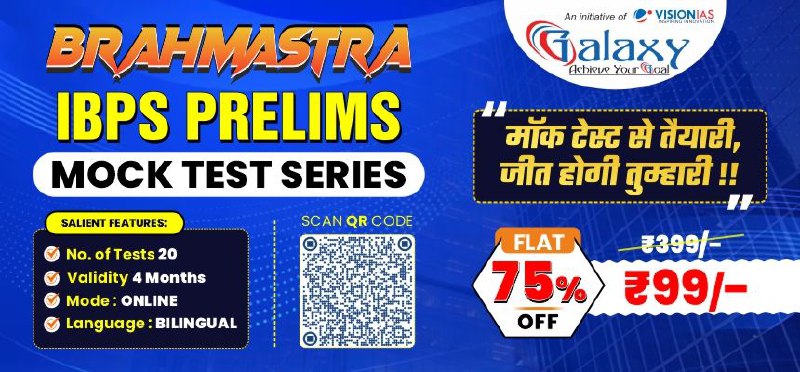01 September, 2025
56th GST Council Meeting
Thu 04 Sep, 2025
Reference:
- The 56th GST Council meeting was held on 3-4 September 2025 in New Delhi, chaired by Union Finance Minister Nirmala Sitharaman.
Key Participants:
- Finance Ministers of the Centre and States, Chief Ministers of Delhi, Goa, Haryana, Jammu & Kashmir, Meghalaya, and Odisha, along with other senior officials.
- This meeting was crucial to implement Next-Generation GST Reforms, as announced by Prime Minister Narendra Modi on 15 August 2025 from the Red Fort.
Key Points and Reforms
1. Simplification of GST Rates
- The current four-tier GST rate structure (5%, 12%, 18%, and 28%) has been simplified into a “Simple Tax” system with only two rates:
-
- Standard Rate: 18% (applied on non-essential goods for revenue stability)
- Merit Rate: 5% (applied on essential goods to reduce costs for common people)
- Certain special goods and services will have a special demerit rate of 40%.
2. GST Reduction for Common Goods and Services
- Daily use items: Hair oil, soap, shampoo, toothbrush, toothpaste, bicycles, kitchenware, and other household items — GST reduced from 12% or 18% to 5%.
- Food items: Packaged snacks, bhujia, sauces, pasta, instant noodles, chocolate, coffee, butter, ghee, and cornflakes — GST reduced from 12% or 18% to 5%.
- Dairy and bakery products: UHT milk, pre-packed and labeled paneer/cheese — GST reduced from 5% to 0%. All Indian bread (chapati, paratha, poori, etc.) — GST removed.
3. Exemptions and Reductions in Key Sectors
Health and Medical
- Life-saving medicines: 33 life-saving drugs — GST reduced from 12% to 0%
- Cancer and rare disease medicines: 3 medicines used for treatment — GST reduced from 5% to 0%
- Other medicines and medical equipment: All other medicines — GST reduced from 12% to 5%; medical devices like diagnostic kits, bandages, and glucometers — GST reduced from 12% or 18% to 5%
- Health and life insurance: All private life and health insurance policies — fully exempt from GST to make insurance affordable for common people
Automobile Sector
- Small cars and motorcycles: Vehicles up to 350 cc — GST reduced from 28% to 18%
- Buses and trucks: GST reduced from 28% to 18%
- Auto parts: Uniform rate of 18% on all auto components; three-wheelers — GST reduced from 28% to 18%
Industry and Business
- Textile sector: Hand-spun yarn — GST reduced from 18% to 5%; man-made yarn — GST reduced from 12% to 5%
- Cement: GST reduced from 28% to 18%
- Handicrafts and stones: Handicrafts, marble, granite blocks, and leather goods — GST reduced from 12% to 5%
- Fertilizers: Sulphuric acid, nitric acid, ammonia — GST reduced from 18% to 5%
- Renewable energy: Renewable energy equipment — GST reduced from 12% to 5%
Service Sector
- Hotel accommodation: Rooms priced at ₹7,500 per unit per day — GST reduced from 12% to 5%
- Personal services: Beauty and wellness services like gyms, salons, barbers, yoga centers — GST reduced from 18% to 5%
Effective Date: These changes will be implemented from 22 September 2025, except for tobacco products, which will follow later under certain conditions.
Goods and Services Tax (GST) – General Information
- Definition: GST is an indirect tax imposed on the sale, manufacture, and consumption of goods and services in India.
- Objective: To simplify the tax system, coordinate tax collection between the Centre and States, and reduce tax evasion.
Start and Legal Basis:
- Implemented on: 1 July 2017
- Legal Basis:
-
- Constitution (122nd Constitutional Amendment Act, 2016
- GST Act 2017 (CGST, SGST, IGST)
Types of GST
- CGST (Central GST): Collected by the Centre
- SGST (State GST): Collected by the State
- IGST (Integrated GST): Collected on inter-state transactions
Key GST Documents
- GSTIN (GST Identification Number): Registration number
- GST Return Filing: Online submission of returns
- Tax Invoice: Document for purchase/sale
GST Applicability
- Applicable in all states and Union Territories
- Both Centre and States share the revenue
Constitutional Provisions Related to GST
- Article 246A: Authority of Parliament and State Legislatures to levy GST
- Article 269A: Distribution of IGST between states
- Article 279A: Establishment, function, and structure of the GST Council
- Article 366(12A): Definition of Goods and Services Tax
GST Council – General Information
Establishment: Under Constitution (101st Amendment) Act, 2016
Legal Basis: Article 279A
Objective: To coordinate between Centre and States for GST administration, policy formulation, and reforms
Structure
- Chairperson: Union Finance Minister
- Members:
-
- Finance Ministers of all States or their representatives
- One representative from the Centre
Decision-Making
- Quorum: At least half of the members must be present
- Voting: Decisions require three-fourth (75%) majority
-
- Centre’s vote weight: 1/3
- States’ collective vote weight: 2/3
Key Functions
- Determining tax rates and policy
- Reforming exemptions and tax structures
- Resolving disputes between States and Centre
- Recommending technical and administrative improvements in GST
- Ensuring simple and transparent tax policy for traders and citizens
Special Powers
- Approval of GST rates or changes is mandatory before any state or Centre can implement them
- Controls IGST distribution and tax collection among states
- Maintains uniformity and balance in tax policy


















